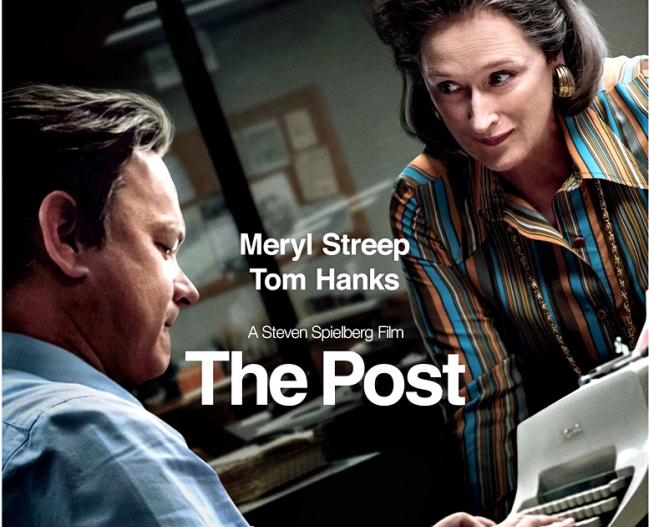 January
26
January
26
Tags
The Post (2017)

The term ‘fourth estate’ was coined in 1841 by philosopher Thomas Carlyle when he said that the Reporter’s Gallery was far more important than the ‘three estates’ of parliament. This titbit of history tells us the battle lines over ‘fake news’ are as old as ‘the press’ itself. It is also the context for The Post (2017), a dramatic thriller and civics lesson about the media’s role in checking government power. The Post shows why the media is despised by despots; it is essential viewing for anyone wanting to better understand today’s shambolic attacks on the media.
The facts of the story became world news. By the mid-1960s, most Americans were losing faith in the nation’s prospects of an honourable conclusion to three decades of conflict in Vietnam. While various Presidents told Americans that success was assured, the top-secret Pentagon Papers revealed that national policy was based on a litany of lies. Former military analyst Daniel Ellsberg notoriously leaked the Papers to the New York Times, but publication was suppressed by court order. The rival Washington Post acquired a copy and had to decide whether to publish and risk the paper’s future, or not publish and lose the respect of its journalists.
A dramatic high-tension wire is strung between Post heiress and socialite Katherine Graham (Meryl Streep) and her hard-core news editor Ben Bradlee (Tom Hanks). They are polar opposites: she is a darling of the establishment, uncertain of her ability and fearful of losing not only the business but her social standing. Bradlee is a truth-seeking journalist who mistrusts lawyers and would publish at any cost. Described as “the most highly classified documents of the war”, the President commands an army of lawyers threatening Armageddon if the paper goes to print. The film’s period set design is brilliant: the reporter’s room is a galley of buzzing typewriters and the printing press a mechanical maze of oiled steel grinding out papers in a frantic atmosphere of unrelenting deadlines. Against this background, the pre-feminist newspaper owner must make a decision that could bring down a President. When the choice is made, the Post must then face presidential retaliation via the Supreme Court.
This story requires no narrative embellishment, nor does it need dramatic performances to convey the high-stakes of an extraordinary moment. The casting of stars and support is excellent. Streep and Hanks give their most understated performances of recent times; no other contemporary actors could have filled these roles with their authority and authenticity. Spielberg’s direction keeps the events unfolding at a brisk pace to leverage the tension curve upwards while sticking close to the facts. This is masterful storytelling based on an important event that resonates into the modern era.

Director: Steven Spielberg
Stars: Meryl Streep, Tom Hanks, Sarah Poulson

Wish I could be as succinct as you.
LikeLiked by 1 person
Careful what you wish for Christine; your review is more descriptive and captures fine detail that I have not explored.
LikeLike
Saw this a couple of weeks ago and agree with all you say. I was a little confused for the first twenty minutes until I’ll sorted who was whom, and then I lost myself in the story. It’s interesting to see the portrayal of Graham, as you say, pre-feminist. It would have been all too easy to play it with a modern slant and thrown the whole film out of context.
LikeLiked by 1 person
Spielberg is too good a director to tamper with a darn good story; the capture of period, mood, technology, and personalities are all excellent.
LikeLiked by 1 person
Lovely piece of writing. I’m looking forward to seeing this.
LikeLiked by 1 person
Thank you Dan; hope you enjoy it.
LikeLike
https://www.imdb.com/title/tt1319726/
I watched this excellent video shortly after seeing the film. I think it adds a great deal to our understanding of events and I see Elseberg as a true hero.
LikeLiked by 1 person